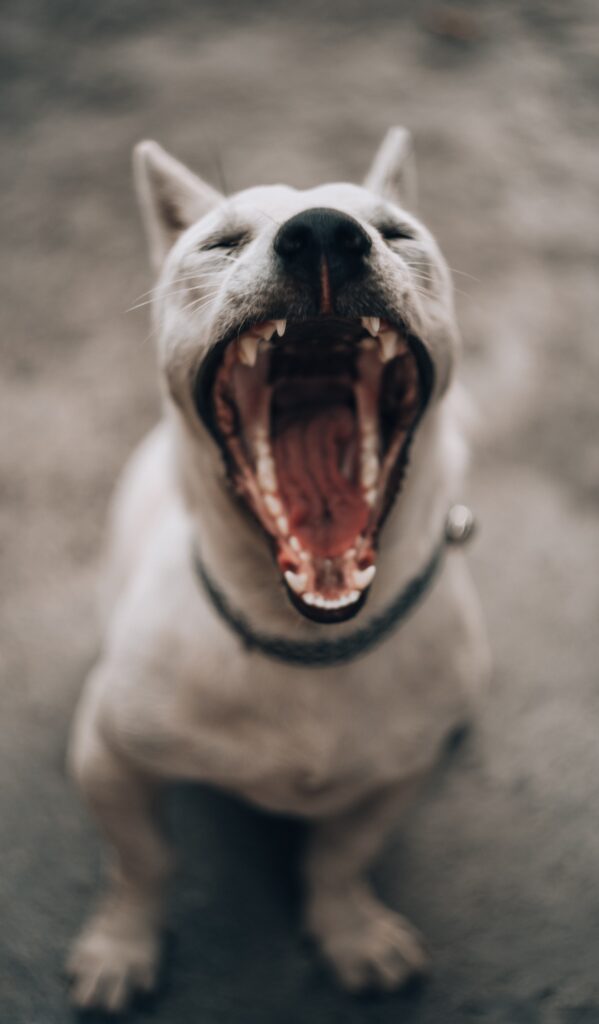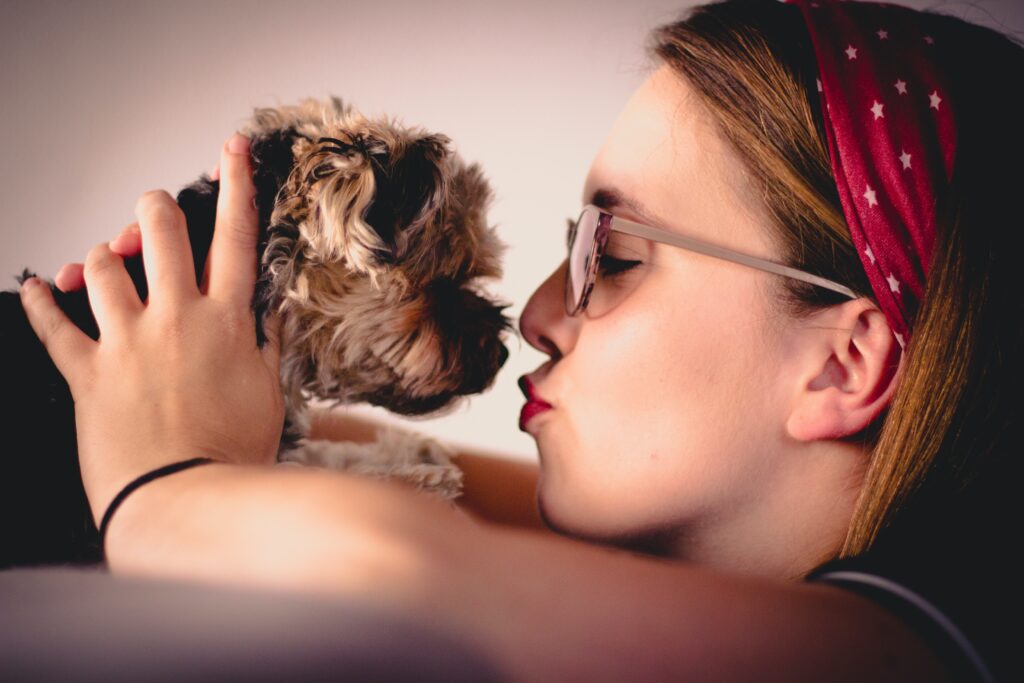
Is your dog’s breath so terrible? Your furry child has a lovely face, but when he opens his lips, the scent is frightening.
Thank you for reading this post, don't forget to subscribe!Stop thinking that bad breath in a dog is normal! Come learn about the reasons for stinky dog breath and what Fetchstop can help your dogs with their breath stinky problems.
At the end of the essay, certain products are advised to help with nasty dogs’ stinky mouths.
The reasons for foul breath in dogs
When you get home from work, the cute fuzzy kid racing straight toward you is the most exciting thing to see. The tiredness is frequently blown away at that point, but when you squat down and hug your dog, what you smell is its mouth stink! How bad is it!
It is typical for a dog’s saliva to have a slight flavour comparable to lactic acid bacteria under normal circumstances. Still, if the dog’s saliva smells so noticeable that others can’t help but frown when they smell it, there is undoubtedly an issue with the oral cavity!
What causes bad breath in dogs? Let’s look at the top 5 reasons for unacceptable dog breath.

1. Lack of oral care
Small dogs are more likely to have dental calculus and periodontal disease due to their genetic link. If the owner does not maintain the dog’s oral health, it is easy for the dog to acquire plaque and potentially develop periodontal disease, which causes the dog to have bad breath, like a fishy odour.
However, the most prevalent reason for foul-breathing in dogs is the owner’s failure to brush the dog’s teeth. Bad breath can occur regardless of the dog’s size if you do not brush your teeth.
2. Baby teeth are not completely lost
Incomplete shedding of deciduous teeth may also be the cause of foul breath in dogs. When permanent teeth replace deciduous teeth, the deciduous teeth do not fall out fully, allowing the dog’s teeth to be sloppy and easy to build tartar, creating an environment where dental plaque likes to breed, causing bad breath.
3. Eating too many carbohydrates
We all heard as children that eating too much sugar can lead to tooth decay, and a similar issue occurs in dogs.
When dogs consume a lot of carbs or foods containing starch and sugar, the mouth environment becomes acidic and becomes a breeding ground for dental plaque. If they do not develop the practice of brushing their teeth, they will gradually accumulate tartar, resulting in poor breath or periodontal disease.
4. The dog is old
Ageing is an unavoidable part of life. Chewing skills and gastrointestinal function in dogs gradually weaken and diminish as they age. It is possible to digest food inefficiently after eating. Food remnants remain in the gastrointestinal tract and ferment with intestinal bacteria, producing gas. It may also result in poor breath.

5. Systemic diseases cause
Diabetes, renal disease, and liver disease can all cause the dog’s poor breath to taste sweet, urine-like, or rancid.
The connection between diabetes and dog bad breath: When diabetes is not effectively controlled, the body produces volatile ketone bodies, which are expelled through the respiratory system, resulting in poor breath that smells sweet and fatty, like rotten fruit.
The association between kidney disease and bad dog breath: The dog does not lick his buttocks but smells of urine, which could be due to decreased renal function, which results in the inability to remove ammonia-containing waste, causing the dog’s mouth to smell of urine.
The link between liver disease and unpleasant canine breath: The liver is an essential organ that processes poisons and regulates metabolism. When the dog’s liver function is impaired, his poor breath will most likely smell like rotting food and may be accompanied by symptoms such as vomiting and decreased appetite.
What should you do if your dog’s mouth stinks?
The remedy to dog bad breath consists of three main points:
- Every day, brush your dog’s teeth and use a mouth spray.
- Schedule regular dental examinations and cleanings for your dog.
- Maintain consistent and quantitative feeding habits for dogs.
Only brushing and oral inspection can cure the root cause of canine dental disease. Simultaneously, other dietary controls or the use of tooth cleaning toys and materials can play an auxiliary role in dog dental cleaning, assisting busy owners in keeping their pets healthy. Dog dental treatment is very complete.
TropiClean Fresh Breath
TropiClean Fresh Breath Clean Teeth Oral Care Gel is a simple approach to eliminating plaque and tartar from your dog’s teeth. If you use it as suggested every day, you’ll have cleaner teeth in 30 days or less!
TropiClean Fresh Breath develops a unique blend of chemicals that help eliminate plaque and tartar safely and effectively!
Dogs That Are Healthy – Oral care is more than simply making your pet’s grin shine; it’s also a crucial element of their general health. In fact, by the age of 3, 80% of dogs show signs of dental disease. Doing appropriate oral care for your dog from a young age will lead to more enjoyable experiences for both of you.
Get more information about dog’s dental health: Why Dog Dental Care Is Important?

